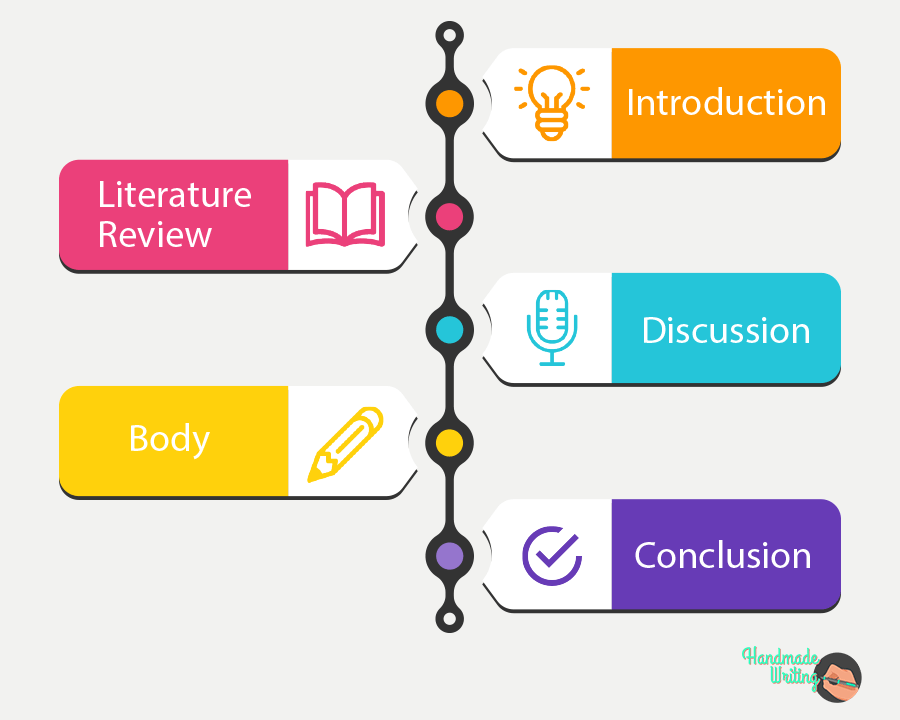Before you learn how to write a term paper, it's important to get familiar with a few questions student always ask.
- Is a term paper a research paper?
- What are the parts of a term paper?
- How many pages or words should a term paper be?
By definition, a term paper is a paper written by students in the course of a term or a semester.
When writing a term paper, you need to research the topic you want to write about, create a working thesis and find reliable sources to cite. After that, create an outline and use it to draft your term paper.
You should have enough time for revision since editing is important if you want to hand in your best assignment.
Do You Need Help With Your Term Paper?
Get in touch with our professional team of writers today.
Getting Ready to Writer Your Term Paper
Start Early
A term paper is longer compared to other essay types as it accounts for a bigger portion of the grade you will get. Also, a term paper requires deeper research, which takes a lot of time to complete.
That means you need to avoid the temptation of waiting until the last minute to work on the paper.
Break down your paper into different parts and work on it in gradually. Allow yourself at least one day between one stage and the next to relax. That way, you can come to the next stage ready to continue with writing.
Review Your Assignment
It may be that your professor gave you an assignment for your term paper, or there is a description of it in your syllabus.
Take time to review all the information you have about the project to get the clear format as well as the requirements.
If you need clarifications about the assignment, ask early. After all, professors are usually more than happy to answer all questions.
How to Write a Term Paper in One Day: A Step-by-Step Guide
Once you’ve reviewed the requirements for the assignment, follow this guide, step-by-step, to learn how to write your term paper.
1. Choose a Relevant Topic
Some instructors assign you a topic while others may leave it up to you to choose one. Even where you have a general research paper topic to work with, you still need to take time and decide on an angle.
Assume for instance that the topic you have been given is “the American Civil War.” This is too broad a topic to discuss in your term paper.
A possible angle you can go with is What Role did the African Americans Play in the Military during the War?
Equally important is the need to identify your term paper’s purpose. Sometimes, the question might start with “Discuss the History of” or “Write an analytical paper about”.
Without it, feel free to determine your purpose. Is it to argue, persuade, inform, or analyze? You can also check with your instructor just to ensure that your goal is in perfect alignment with the assignment.
2. Do Your Research
For you to write a good term paper, you will need to do research. It is advisable to start putting together your research materials well before you write an outline.
While writing, you will most likely spot gaps that need to be researched further. Doing preliminary research enables you to have good arguments to write about your topic.
One place to start is to consult your librarian (if you have a library). Librarians are incredible resources that can guide you on relevant and trustworthy research sources.
You may want to check out published books, government websites, and peer-reviewed journals. Others include mainstream journalism sources like The Guardian, the New York Times, and Reuters.
However, never use “opinion” pieces as factual information.
Tracking your sources is also something you want to do as you research your paper.
ReWorks and EndNote are extremely useful when it comes to keeping sources that you consult.
You can also track your sources by writing the information in a word processing document, index card, or writing bibliographic information. Remember to note down the sources for quotations you copy and page numbers.
3. Write a Working Thesis
You’ll likely develop your thesis statement as you write the term paper.
This happens a lot when writing an analytical essay or working on an argumentative essays, mostly because you have to think as you write.
It’s possible to reach conclusions that even you didn’t expect. Having a working thesis will help you to know the central theme or point of your paper.
In high school, a three-prong thesis statement can work. It includes the three main points, with each one on its own paragraph.
However, this thesis type doesn’t work when you are writing a term paper for college because they tend to be more complex and longer in essays. Therefore, use a statement that states the main claim or focus for your term paper.
4. Write an Outline for the Term Paper
You should create an outline to enable you to know how you want to move.
An outline is more like a road map to help you know how to move from point A to B.
However, an outline isn’t final and can be tweaked a little. It gives you a framework and structure to refer to in case you get lost midway.
An outline also acts as the skeleton of your term paper so you will just need to fill in details. Below are some elements to include in your outline:
5. Use the Introduction to Make Your Point
The introduction of a term paper is the part that you will continue rewriting as you write the paper. That’s because you’ll experience direction changes, flow, and outcome.
It’s therefore reasonable to treat it only as a starting point and note that you can revise it as much as you want.
Using this approach gives you the freedom to mess up your introduction, but correct it as required. To write the perfect introduction, use the HIT formula.
6. Use Convincing Paragraphs
Every paragraph should have a purpose and the only way to ensure this is to ensure each one of them supports your case in a new way.
Try to isolate each paragraph’s first sentence. Taken together, these should read like a list of facts proving your thesis.
7. Use the Right Term Paper Format
You will most likely use outside sources in your term paper. Make sure you know the citation style preferred by your instructor.
Keep in mind that each of these usually has a specific notation system. Check the rules if you are unsure.
It’s also a good idea to sprinkle quotes throughout the text, as this will help you to make your point clear. However, refrain from overdoing it because it may give the notion that you are just using other authors to write your paper for you.
8. Write a Strong Conclusion for Your Term Paper
The purpose of your conclusion is to wrap up or summarize your arguments for the reader. While it should return to the thesis, avoid restating it exactly.
You don’t have to write the conclusion fully while you are outlining. At the time of writing, you may not have a complete idea about how you will conclude until after writing a significant part of the essay.
Some of the most effective ways to conclude your term paper include restating the theme you introduced in the opening paragraph, proposing a solution to a problem, expanding the relevance of your argument to a larger extent, or even ending it with a provocative question.
Alternatively, you can use the ROCC method:
Wrapping This Up
When your instructor asks you to write a term paper, they expect you to demonstrate the mastery and knowledge of what was taught in the term that has just ended.
And because your professor or instructor may rely a lot on the quality of the term paper you write to determine the grade you get in that course, it’s important that you give it your best.
Start early, do a lot of research before you start writing, organize your thoughts using an outline, stick to the recommended styles, and write a powerful conclusion that wraps up the main points.




